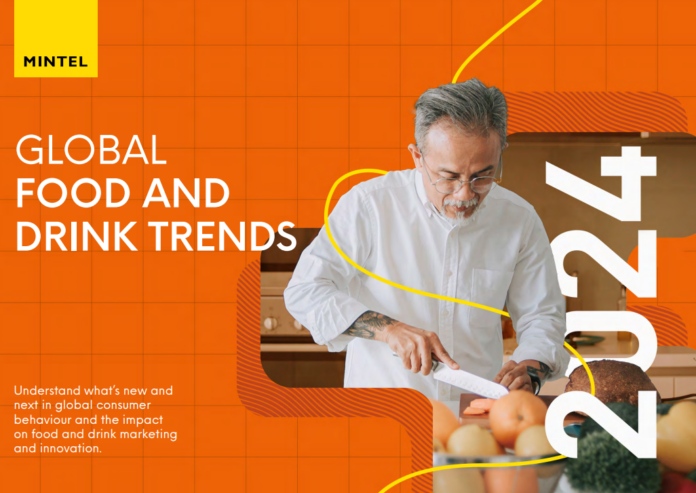“It’s been a year of change,” says Jenny Zegler, Director of Mintel Food & Drink. “With the lingering effect of the COVID-19 pandemic, fluctuating economic instability, increasing political unrest, and new artificial intelligence around ever corner, many consumers feel overwhelmed and distracted, resulting in interesting behaviour shifts.”
“This year, we are calling out three trends that we think are particularly interesting for brands to pay attention to – now and in the future. They are ‘Trust the Process’, ‘Age Reframed’ and ‘Eating: Optimised’.”
The report makes the following predictions:
Trust the Process
The report states that ‘clear communication’ will be key throughout 2024, as consumers become increasingly aware of the processed and ultra-processed nature of their diets.
Scrutiny of the processing used within the industry is intensifying, inspiring consumers to look more closely at nutritional information and production methods, encouraging them to reconsider how often they consume processed food and drink.
“Brands offering minimally processed products should share how processing improves their products in ways such as enhancing nutrition, increasing shelf life, or reducing environmental impact. At the same time, brands that produce overly or ultra-processed food and drink products will need to remind consumers of the joy and comfort they get from these products.”
We can expect to see an increase in better-informed food and drink shoppers as the transparency around processing enhances over the coming years, with opportunities for brands to develop ‘better-for-you’ versions of their ultra-processed products.
“In the coming years, interest will grow in less processed food and drink made with upcycled ingredients rich in vitamins, minerals, fibre, protein and other nutrients.”
Age Reframed
A new approach to healthy ageing is being pioneered by Generation X (born between around 1965 and 1979) as they focus on products that will help them thrive in the decades to come, prioritising ways to extend their lifespan.
Customers aged 40+ account for the most significant share in many markets around the world, and as such, brands are playing an essential role in educating Gen X about healthy ways to progress through the ageing process. UK retailer Holland & Barrett offers free personalised advice on perimenopause and menopause symptoms, whilst Nestle China offers a milk powder formulated for middle-aged and senior groups to provide at least 67.5% of an adults required daily calcium intake for adults aged 45+ when drank twice a day.
“Food and drink brands can help promote healthy ageing by ensuring nutrient-rich food and drink are affordable, accessible, and convenient for all active agers. Brands can support the diverse lifestyles of consumers aged 40 and over by offering appropriate, balanced nutrition that caters to individual needs.”
Eating, Optimised
Advancements in technology will streamline the way we plan, shop, and cook meals, bringing with it a new era in convenience.
Brands are optimising and adapting their products to be more efficient for consumers, from designing product lines to cook at the same time, to providing cooking instructions for multiple appliances. These experiences will make consumers more open to new products and tools to help them save time, propelling conveniences like automated shopping lists and meal planning apps into daily essential tools.
“In the next two to five years, consumers’ daily experiences with technology will make AI, AR and other technology tools non-negotiable time savers in the kitchen.”
Retailers will utilise these technologies for efficiency, with real-time shopping assistance to help customers in find products both online and instore, whilst marketing campaigns will shift into an evolved form of product placement, with AI recipe generators suggesting specific brands within consumers’ meal planning.
“The spectrum of consumer usage will continue as some consumers gravitate toward AI-created products that enhance time savings and convenience. In contrast, others will look to AI as a source of joy and discovery that reinvigorates their desire to stay creative in the kitchen.”











